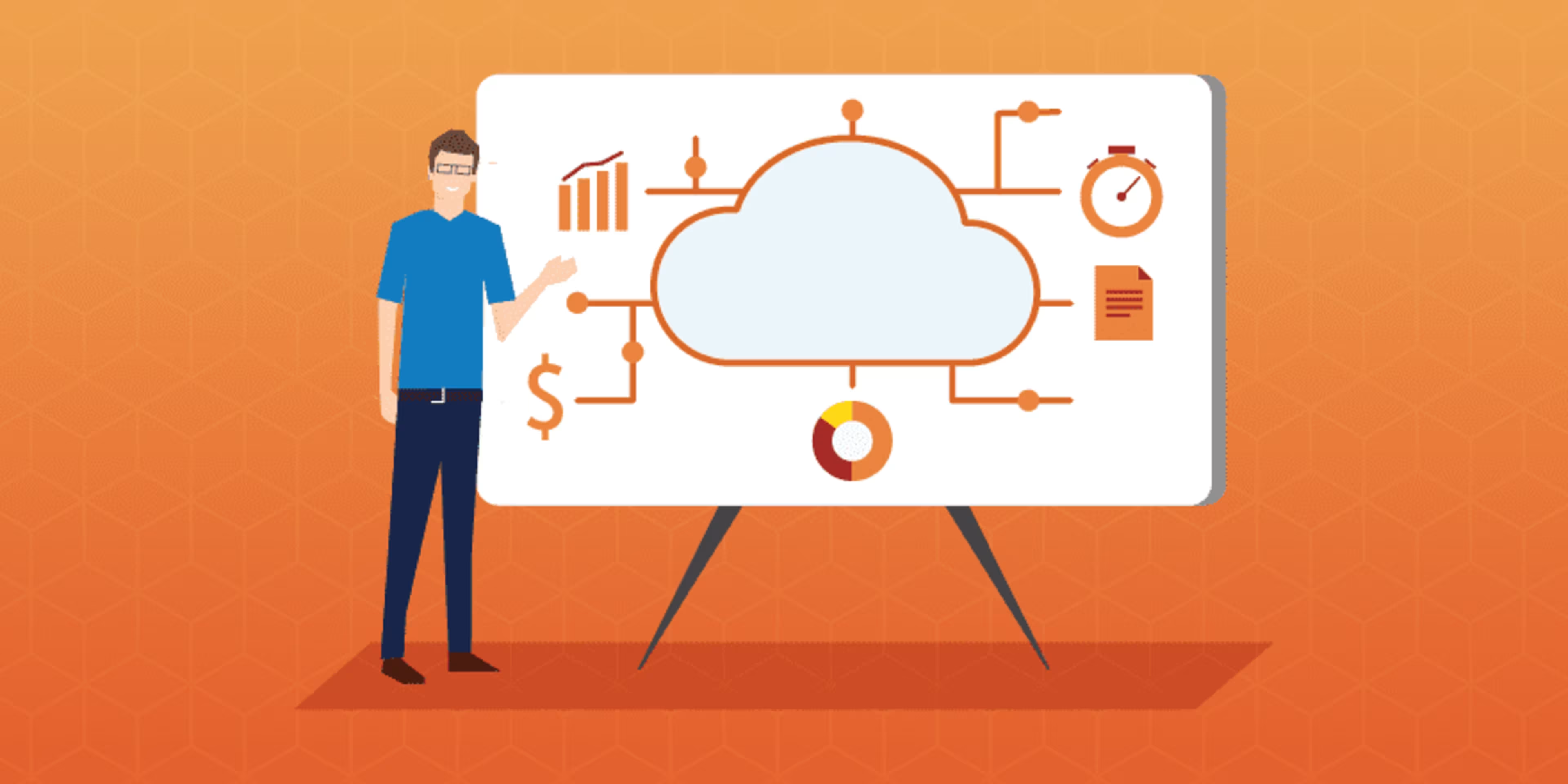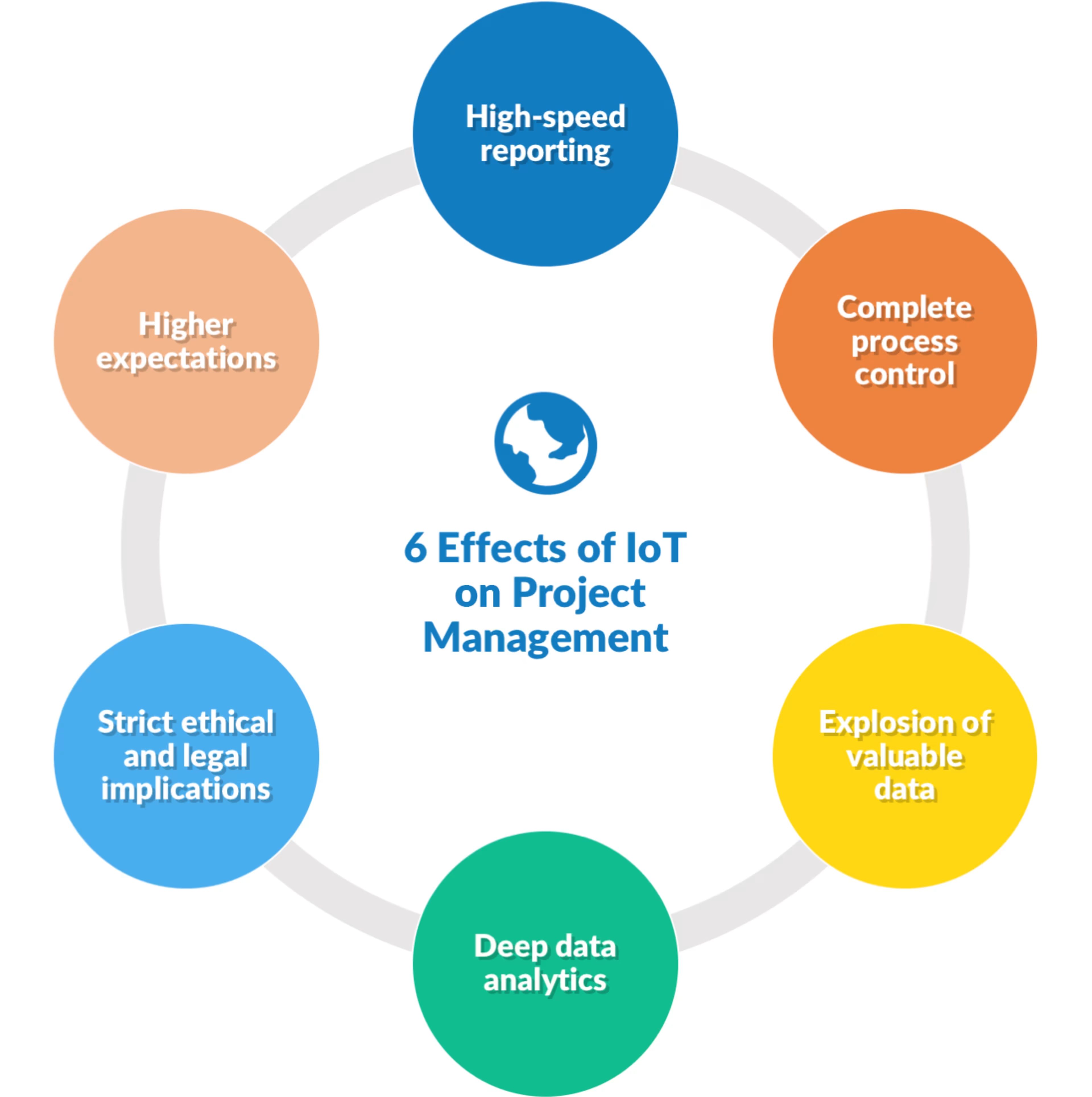Author, speaker, and futurist Jacob Morgan wrote in a Forbes article that, “The internet of things (IoT) is becoming an increasingly growing topic of conversation both in the workplace and outside of it. It's a concept that not only has the potential to impact how we live but also how we work."
The internet of things has also become one of those tech buzzwords that loses a little more of its real meaning every time a Silicon Valley wannabe carelessly tosses it around.
So what is the internet of things, really, and how does it intersect with project management?

The internet of things and project management
The IoT is essentially the global network of devices that can communicate with one another and end users through the internet.
As recently as two decades ago, this network was made up of computers almost exclusively. But in the last decade, the IoT has exploded through the proliferation of everything from smartphones, to microwaves and refrigerators, and even toasters, all sharing data with each other and the world around them.
"Gartner, Inc. forecasts that 8.4 billion connected things will be in use worldwide in 2017, up 31 percent from 2016, and will reach 20.4 billion by 2020."
That's almost three devices per person, and each of those devices will be measuring data and facilitating communication.
Many major technology firms are developing their own IoT platforms, such as Amazon Web Services, Microsoft Azure, and Google Cloud.
But preparing for the IoT isn't just a concern for megacorporations. Project managers and small business leaders also need to be ready for a connected workplace.
The IoT intersects with project management on everything from team collaboration to data collection. You can expect real-time status reporting via IoT to usher in a new era of dynamic planning and revolutionized project execution.
Data collection will happen seamlessly and constantly, allowing leaders to make more informed decisions. Inventory and resources will be easily monitored at all times.
Devices can automatically sense and respond to what is happening around them or in their network, reducing the need for human intervention, lowering operating costs, increasing response times, and minimizing errors. Moreover, customers can expect to receive better and faster service.
In terms of project management technology, the IoT will fundamentally alter the speed of project execution. Organizations that capitalize on the IoT will complete projects faster than those that don't, and organizations that fail to adapt to the IoT revolution will be left hopelessly behind.
At least six things will change, which will require project managers to adapt both technically and systematically.

1. IoT enables hyperspeed reporting
IoT substantially reduces the cost of communication.
The hyperconnected devices and constant flow of data that automate systems will speed things up considerably. No more idle times are required in between activities. No more silos from support systems such as databases, storage, and IT operations.
IMPACT Say you're an IT project manager, and you need to run a status report on all of your organization's desktop and laptop computers and tablets and mobile devices. In the past, this process might take weeks. But with the IoT, a project manager could run a report on the quantity and condition of all of those pieces in an instant.
2. IoT allows complete monitoring and process control
IoT allows project managers, management, and stakeholders to monitor and control activities in real time. The overall snapshot of a comprehensive system is monitored on a single screen, which allows overseers to immediately attend to any interruptions.
IMPACT Using equipment as an example, sensors will be used for monitoring and predicting maintenance needs throughout a project's lifetime. The scope of devices, activities, and conditions that need to be tested will increase exponentially as projects become more complex. Ease of use and environments suddenly become critical.
3. IoT creates an explosion of valuable project data
In the past, archiving historical data was a time- and labor-intensive process. With the IoT, historical data will become available immediately, which is extremely helpful for current and future projects.
Everything from budgeting to individual meetings with team members will be recorded in great detail, providing a solid foundation for future decisions.
IMPACT Project management tools will need to be more responsive and scalable to accommodate this data explosion. Organizations need to make sure that their project management software package is capable of growing to accommodate this incoming flood of data. They also need to know when it's time to upgrade—for example, if your team is capping out on your storage allowance each month.
4. IoT allows super-deep data analytics
With the IoT comes advanced data analytics, and advanced data analytics require advanced interpretations and management.
IMPACT Project managers must upgrade their skills related to data handling, which could mean increasing spend and resources toward data management, hiring experienced data analysts, and accounting for data analysis when creating the project timeline.
In other words, the more familiar project managers are with the importance of advanced data analysis, the better the chances for project success.
5. IoT ushers in stricter ethical and legal implications
Today's internet-connected devices send data to each other extremely fast. We're not dealing with dial-up modems anymore. One error could create a domino effect that could topple an entire project or, in extreme cases, an entire career before you can say "Enron."
IMPACT Businesses of all sizes need to impose stricter ethical and legal implications on any slight mistake or oversight. Project managers and team members should be aware of this early on so that the project can be completed with minimal ethical and legal risks.
6. IoT raises expectations for all stakeholders
Once companies adopt IoT, the marketplace will be transformed into a level playing field. Only the strongest and the fittest will survive. No longer can organizations hide behind old excuses such as, "We don't have access to that data" or, "We need a few weeks to get that report back."
IMPACT Project managers need to lead the charge when it comes to raising standards in the IoT era. As a project manager, your job is to be aware of the most useful technology available and enable your team to use it.
Are you ready for the IoT revolution?
The IoT will change how we interact, how we work, and how we push ourselves to survive in business. In fact, this transformation has already begun.
IoT will level out the overall competition, leaving those who continuously upgrade our project management skills, both technical and soft, to thrive.
As a project manager, here are some key takeaways you can use to be ready:
Read up on the IoT so that you can talk to your team about it.
Consult your IT department to determine the extent of connected devices already in use on your network.
Set up automatic reports leveraging IoT data.
Look into upgrading your project management software so that it's ready for the influx of data from the IoT.
Beef up your data analysis knowledge and look into adding full-time data analysts to your team.
Do a cybersecurity audit and make sure your data protection is airtight.
The IoT may seem futuristic now, but decades from now it could be as ubiquitous as the internet itself.
And then, we'll all be planning for the next logical step: The IoP, or the Internet of People, which would require all of us to have sensors implanted in our bodies.